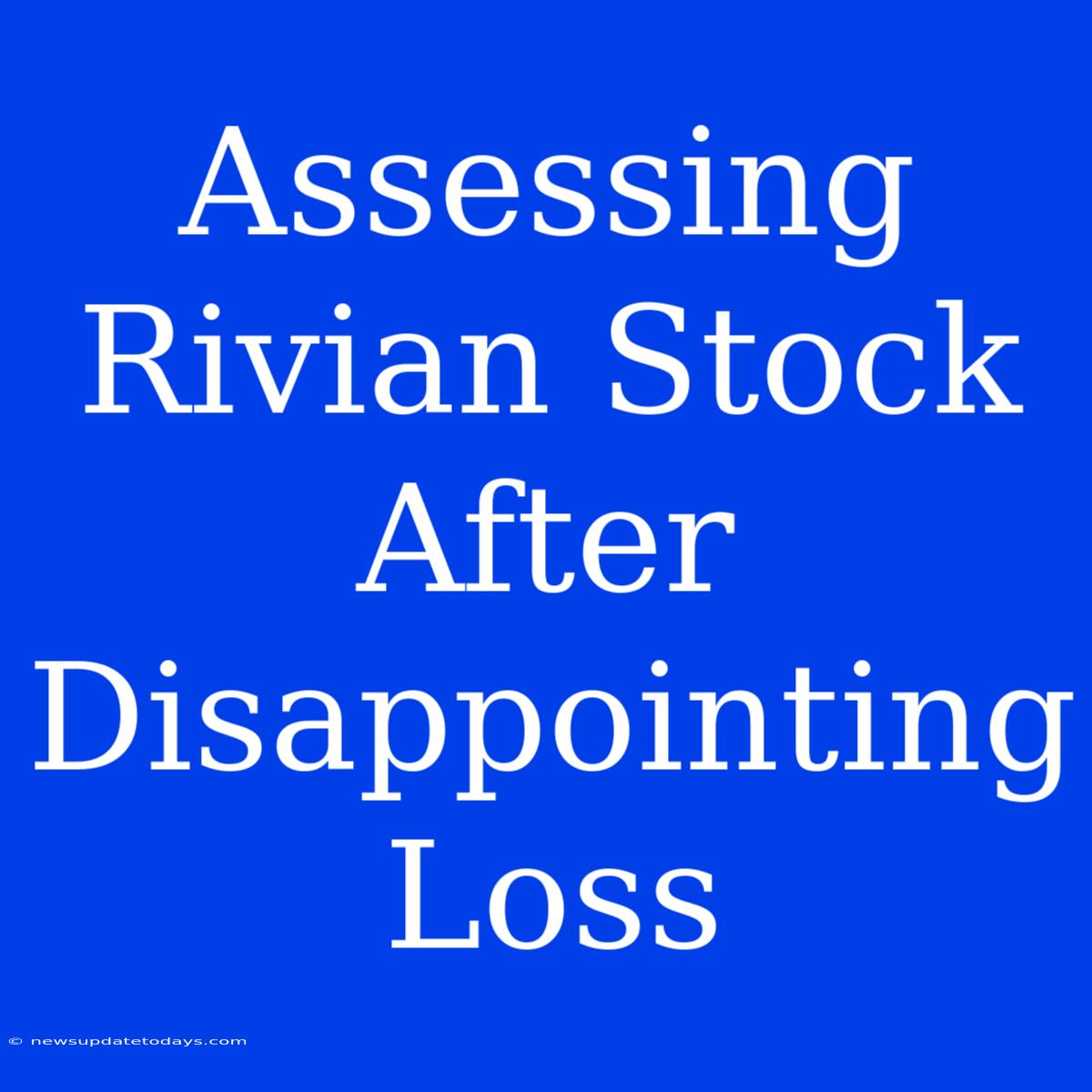Assessing Rivian Stock After a Disappointing Loss: Is the Future Electric?
Rivian Automotive, Inc. (RIVN) recently reported a larger-than-expected loss, sending shockwaves through the electric vehicle (EV) sector and leaving investors questioning the company's future. While the initial reaction was negative, a deeper dive reveals a more nuanced picture. This article assesses Rivian's current position, exploring the factors contributing to the loss and examining the potential for future growth.
Understanding the Disappointing Loss
Rivian's recent loss wasn't solely attributable to poor sales. Several factors contributed to the disappointing figures:
-
Increased Production Costs: The global supply chain disruptions and inflationary pressures significantly impacted Rivian's production costs, squeezing profit margins. Higher material costs and logistical challenges played a significant role.
-
Ramp-Up Challenges: Scaling production from a nascent stage to mass production is notoriously challenging. Rivian, like many EV startups, faced hurdles in optimizing its manufacturing processes, leading to inefficiencies and increased expenses.
-
Heavy Investments in Infrastructure: Rivian is investing heavily in expanding its manufacturing capacity and developing its charging infrastructure. These substantial upfront investments contribute to current losses but are crucial for long-term growth.
-
Competition: The EV market is becoming increasingly competitive, with established automakers and other startups vying for market share. This intensifies the pressure on Rivian to innovate and maintain its competitive edge.
Analyzing the Positives: A Glimpse Beyond the Losses
Despite the negative headlines, Rivian boasts several strengths that shouldn't be overlooked:
-
Strong Pre-orders and Demand: Rivian's order book remains robust, indicating a solid demand for its products, particularly its R1T pickup truck and R1S SUV. This demonstrates consumer confidence in the brand and its offerings.
-
Strategic Partnerships: Rivian's partnerships with major players like Amazon provide crucial access to capital and markets, mitigating some of the risks associated with being a relatively new player in the EV market. This diversification is key to their future success.
-
Innovative Technology: Rivian has invested significantly in advanced technology, including battery technology and software capabilities. This focus on innovation positions the company for future growth and leadership in the EV sector.
-
Government Support for EVs: Government incentives and policies promoting EV adoption are creating a favorable environment for Rivian and the wider EV industry. These incentives can significantly reduce the cost of ownership for consumers and bolster sales.
Looking Ahead: Is Rivian Stock a Buy?
Whether Rivian stock is a buy depends largely on your risk tolerance and investment horizon. The short-term outlook might remain volatile given the recent loss, but the long-term potential remains significant. The company's strong order book, strategic partnerships, and commitment to innovation offer a strong foundation for future growth.
However, investors should proceed with caution. The EV market remains highly competitive, and Rivian still needs to demonstrate consistent profitability and efficient scaling of its production. Thorough due diligence and a long-term perspective are essential before investing in Rivian stock. Consider consulting with a financial advisor before making any investment decisions.
Keywords:
Rivian Stock, RIVN, Electric Vehicle, EV, Stock Market, Investment, Automotive, Loss, Production Costs, Supply Chain, Competition, Amazon, Technology, Future Growth, Market Analysis, Investment Strategy.

